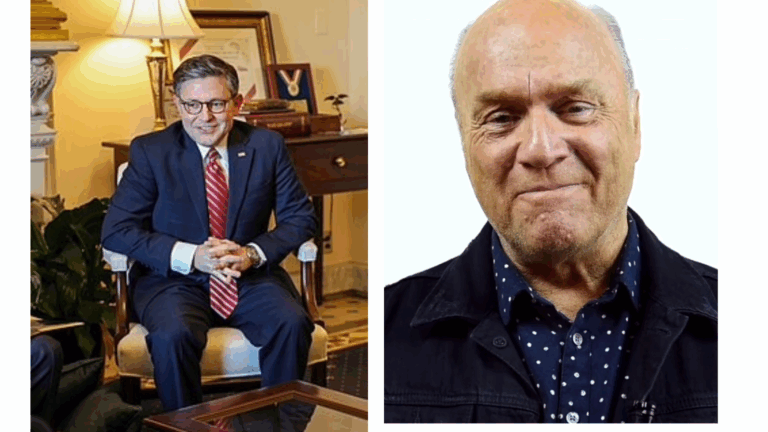

By Susan D. Harris
It was my 11th year Social Studies class when the teacher gave us some “Xeroxed” papers – still warm with that “just copied” smell and repeating that old school refrain: “Take one and pass it back.”
A square box was drawn in the center of the sheet, and there was a line for the student’s name in the corner. The teacher told us to put whatever we wanted in the box, but to think hard about it first.
I took everything very seriously in 11th grade, so I asked myself, “If I have one box to put anything in, I should put the most important thing in the whole world. So what is the most important thing in the whole world?” It came to me like a bolt of lightning: “For God so loved the world that he gave his only begotten Son, that whosoever believeth in him should not perish, but have everlasting life.” I wrote the verse in the tiny box and passed my paper forward.
Within a few days, the teacher returned our papers. We were told they had not been graded, only “reviewed” because they were a “social experiment.” She explained that what we put in the empty box represented what would be the most important thing in our lives: The essence that would drive everything we did. Reflecting later in life, I was impressed with its accuracy. My faith, and sharing it, has been the most important thing in my life. It seemed the box experiment worked for me; but I had serious doubts about how well it worked for classmates who filled their boxes with everything from boats to lions.
If They Have Persecuted Me, They Will Also Persecute You
Now I realize how blessed I am to have been born in a country where I could write John 3:16 in a classroom assignment and not be persecuted or killed for it. In many countries, that one act could have been my death sentence. There have been plenty of reports that Christians are the most persecuted religious group in the world. And while there are those who envy their peaceful, tolerant Hindu and Buddhist neighbors in America, back in their countries of origin — India or Sri Lanka for instance, there are Hindu and Buddhist nationals beating, raping and killing Christians at an alarming rate. If they’re lucky and get to live, they might only face a fine for choosing the wrong faith.
I once knew a Christian-basher that posted on social media, “Persecution of Christians? How stupid. It doesn’t exist.” Indeed, it didn’t exist in her little town where everybody met on Sunday mornings to do business at the popular social club — otherwise known as the Methodist Church. Nobody had to endure a gun-wielding thug demanding they renounce Jesus Christ — that would have been too far-fetched for Pleasant Valley. And if anyone had suggested a three year prison sentence for holding a home Bible study, they would have been laughed out of town. (Sadly, a prison sentence is exactly what happened recently to Chinese citizen Ma Huichao and four of her fellow Christian martyrs who were arrested for the trumped up charge of “gathering a crowd to disturb public order.”)
But Isn’t Everybody Christian?
Years ago, before the tragedy of the World Trade Centers, I bought a Bible as a Christmas gift for a fellow employee. I inscribed it: “To one of the finest Christians I know.” Later on she said, “That was kind of strange what you wrote…about my being one of the finest Christians you know.”
“Well you are!” I said.
“Well,” she continued hesitantly, “We’re all pretty much Christians aren’t we? We’re all born that way. So it sounds kind of funny you know?”
Needless to say, by the time 9/11/2001 rolled around, my friend had a tough learning curve.
Is A Post-Christian Era Already Here?
Who would have guessed that by 2017, traditional middle class Christian America would be expected to unquestioningly acquiesce to any and all whims from Buddhists, Hindu’s, atheists, pagans, wiccans, Satanists, Muslims, freethinkers, gays and everyone else who deviated from their traditionally held beliefs? If they express concern that other religions or worldviews might destructively infringe upon their way of life, they are labeled intolerant or xenophobic. Social networking sites can be found suggesting Christian nut jobs should just die off and let the world evolve beyond the antiquated biblical morality that hung witches from the gallows.
The trouble lies in the fact that contemporary Christians and secularists now agree that morality, as defined in the Bible, is all relative. Relativism automatically undermines any permanent ideas of right and wrong; which in turn strips Christianity of any moral authority it had as the glue that held society together. Years ago, political theorist Russell Kirk wrote “the essence of social conservatism is preservation of the ancient moral traditions of humanity.” Assuming this is true; one might easily argue the essence is gone.
If I say that God says something is wrong, i.e. a sin, I am informed (silenced) that my interpretation is disputable and relative to my own (probably twisted) worldview.
Many say we’ve reached a post-Christian era in America. While a Pew poll showed 70% of Americans continue to identify as Christian, I submit that they are not the same kind of Christian that one would have found 25 years ago. The simplest barometer of this is that the majority of Americans — including self-identified Christians — now support same-sex marriage. The Bible didn’t change its teaching on the subject, but people’s perception of sin changed in response to social mores which were influenced by political activists and professional lobbyists.
Modern Christianity is like a supermarket tomato. It doesn’t taste anything like it did, say, 50 years ago. “Decades of breeding the fruit for uniform color” is one reason the tomato has changed, and one could easily say the same about Christianity: It’s been bred for uniform acceptance and watered down to a palatable ideology, thus removing the underpinning judgements that supported civilized society: Lies have become untruths; adultery is a societal norm. “Thou shalt not kill” is about the only commandment most can agree on, but even that gets murky for those still inside the womb, on death row, or nearing the end of their natural life.
It seems every stumbling block to sin is being removed from our path so we can run full speed to a hell which we (ironically) still believe in. We do all the things the Bible tells us not to do, but still tell pollsters that we believe in God — as if God won’t notice. It’s kind of like name-dropping someone you don’t know just so you can crash the party.
Afraid To Be Christian In America?
I live in an area surrounded by occult shops that cater to pagans, Satanists and others who rightfully believe society gave them carte blanche to openly practice anything they see fit. “Pagan Pride” and witch related bumper stickers slightly outnumber left-over “Bernie 2016” and “Clinton/Kaine” stickers.
(Maybe “deaths of despair” have gone up for so many because, without even leaving their front porch rocking chair, they have been uprooted and thrown into a land of chaos where they are lost among the libertines.)
Add to this the fact that my area is also experiencing an influx of Muslim refugees who refuse to assimilate, and I’m suddenly a stranger in my own land. Speaking English outs me as a local; wearing a cross marks me as a judgmental Puritan.
My local supermarket is now frequented by women in hijab’s walking behind their husbands; I’ve even seen little girls in full niqabs (head coverings that only reveal the eyes; which apparently are not even required in Islam.)
The truth is I’ve reached the point where I’m almost afraid to go out in public and speak the words that I wrote in that little box so many years ago. It’s acceptable to be a Christian — as long as you are the kind that doesn’t take the Bible literally; as long as you don’t bother anyone else about it; as long as you know when to shut up. Once reprogrammed, you might earn the right to be assimilated into your own society, or accepted back into your own town.
Published in American Thinker April 14, 2017
http://www.americanthinker.com/articles/2017/04/a_stranger_in_my_own_land.html






